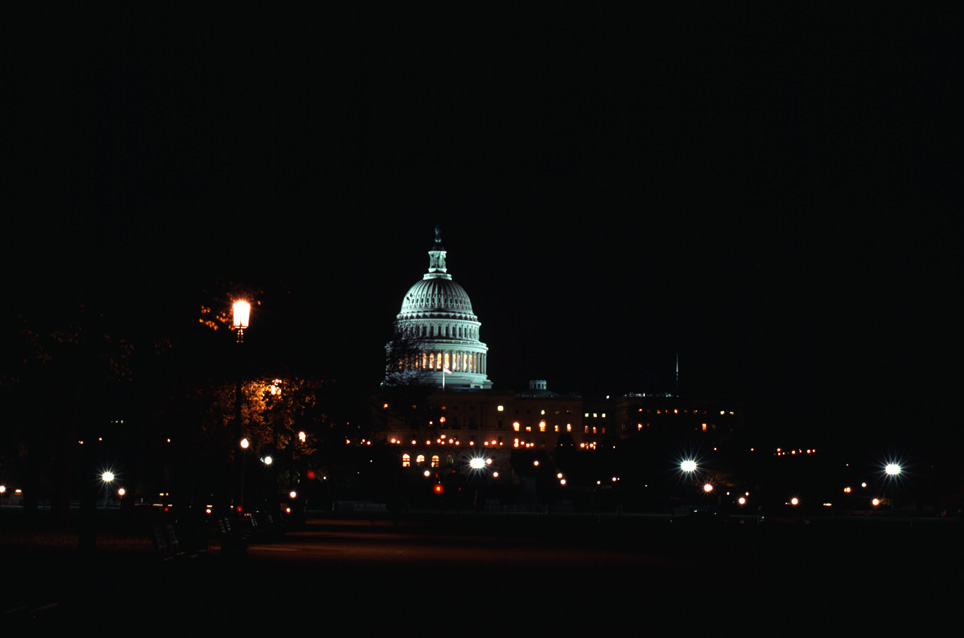
Signs of the Times: Rising Washington Tide Against Religious Hiring
It doesn’t seem to matter to certain powerful members of Congress and powerful DC action groups that religious hiring by faith-based organizations is a legally protected and essential religious freedom and management practice for the organizations—an important reason why they are able to make their vital particular contributions to the common good.
It doesn’t matter to those opponents that:
when the federal government under President Lyndon Johnson in 1965 established the basic rules about job discrimination, it decided that it was not wrongful and illegal discrimination for a religious organization to take account of religion when selecting its staff;
the US Supreme Court in 1987 unanimously upheld the federal rule that religious organizations can consider religion when they hire, whether the position is chaplain, caseworker, or clerk;
religious hiring is prohibited to grantees in only some federal programs—it is legal in many federal programs;
Congress and President Clinton in 1996, 1998, and twice in 2000 put Charitable Choice language into the laws for several programs to emphasize that religious hiring does not become illegal in those programs when a faith-based organizations gets a grant;
Congress almost unanimously adopted, and President Clinton signed into law in 1993, the Religious Freedom Restoration Act (RFRA) to protect religious exercise when the federal government adopts sweeping rules;
the Department of Justice’s legal think tank, the Office of Legal Counsel (OLC), in 2007 issued a memo stating that, because of RFRA, a faith-based organization that hires by religion may be able to take part even in federal programs that ban religious hiring.
No, to these members of Congress and these action groups religious hiring by religious organizations is nothing more than wrongful religious job discrimination. It is such a bad practice that the federal government must forbid it whenever federal money is involved. It is such a bad practice that the appeal to the Religious Freedom Restoration Act must be stripped away.
Actions against religious hiring and religious freedom (partial list)
June 24, 2009: Demand to Attorney General. Americans United for Separation of Church and State asks Attorney General Eric Holder to investigate and terminate grants to various faith-based providers, in part because of their religious hiring. The letter also seeks withdrawal of the 2007 OLC memo.
Sept. 17, 2009: Demand to Attorney General. Letter from the Coalition Against Religious Discrimination (CARD) to AG Holder demanding withdrawal of the 2007 OLC memo.
Sept. 25, 2009: House of Representatives Bill. Rep. Bobby Rush introduces HR 3655 to combat deceptive funeral practices—including in the bill first-time language to restrict RFRA’s protective scope (he later removed the language).
Feb. 4, 2010: Demand to the President. CARD letter to the President in connection with the soon-to-be issued recommendations of the Advisory Council on Faith-Based and Neighborhood Partnerships, demanding a ban on religious hiring by faith-based grantees and greater restrictions on religious expression by those grantees
Feb. 12, 2010: Congressional Letter. Letter to the President from Reps. Bobby Scott, Barney Frank, Jerrold Nadler, Chet Edwards, and Chris Van Hollen, supporting the Feb. 4th CARD letter.
May 13, 2010: Congressional Hearing Challenge. In a House Judiciary Committee hearing, Rep. Bobby Scott presses AG Holder to state that the administration will stamp out job discrimination by federal grantees on the bases of “race and religion.”
May 28, 2010: House of Representatives Bill. Rep. Patrick Kennedy introduces HR 5466, the SAMHSA Modernization Act, which includes language to create a universal ban on religious hiring in federally funded drug treatment and mental health programs and to remove the possibility of appeal to RFRA to lift this restriction. SAMHSA is a Charitable Choice program, so the bill is also an attack on this Clinton-era innovation.
June 18, 2010: Demand for House Hearings. CARD letter to Rep. Jerrold Nadler, chair of the Constitution, Civil Rights, and Civil Liberties subcommittee of the House Judiciary Committee, demanding a congressional hearing to make the administration say when it will stop religious hiring by faith-based grantees and impose additional restrictions on their religious expression.
July 22, 2010: Congressional Hearing Challenge. In a hearing on the Americans with Disabilities Act, Rep. Bobby Scott demands that Thomas Perez, head of the Civil Rights Division of the Department of Justice, say whether the administration allows religious groups to engage in religious job discrimination and still get federal funds.
Next . . . ?
What will be the next attacks on religious hiring and on the religious freedom legacies of President Lyndon Johnson (the Civil Rights Act of 1964, with its religious hiring freedom), President Bill Clinton (the Religious Freedom Restoration Act of 1993 and the multiple adoptions of Charitable Choice language), President George W. Bush (implementing regulations for Charitable Choice and promulgation of Equal Treatment rules), and President Barack Obama (maintenance of a strong federal faith-based initiative that doesn’t backslide to superseded Supreme Court views that were biased against faith-based services)?
For further information:
Prof. Douglas Laycock’s letter to Attorney General Eric Holder defending the OLC memorandum about RFRA. Go here: http://mirrorofjustice.blogs.com/mirrorofjustice/2010/01/laycock-on-preserving-religious-freedom-for-religious-organizations-receiving-funding.html
